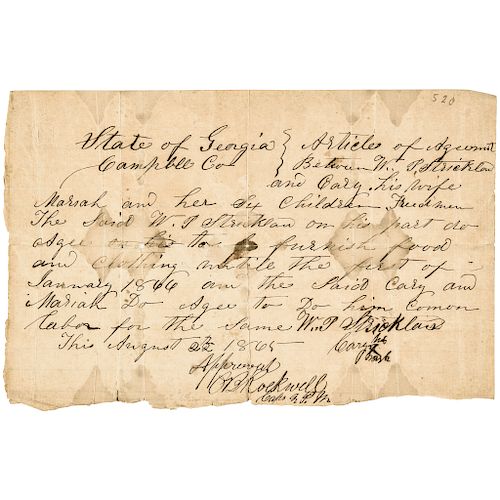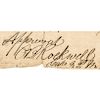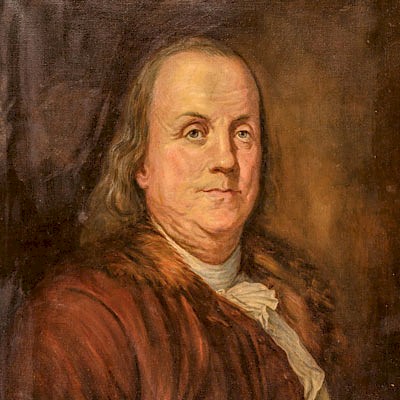Transitioning from Slavery to Free Labor during the months after the Civil War
Lot 257
Estimate:
$800 - $1,000
Absentee vs Live bid
Two ways to bid:
- Leave a max absentee bid and the platform will bid on your behalf up to your maximum bid during the live auction.
- Bid live during the auction and your bids will be submitted real-time to the auctioneer.
Bid Increments
| Price | Bid Increment |
|---|---|
| $0 | $10 |
| $200 | $20 |
| $300 | $25 |
| $500 | $50 |
| $1,000 | $100 |
| $2,000 | $200 |
| $3,000 | $250 |
| $5,000 | $500 |
| $10,000 | $1,000 |
| $20,000 | $2,000 |
| $30,000 | $2,500 |
| $50,000 | $5,000 |
| $100,000 | $10,000 |
| $200,000 | $20,000 |
| $300,000 | $25,000 |
| $500,000 | $50,000 |
About Auction
By Early American History Auctions
Aug 24, 2019
Set Reminder
2019-08-24 12:00:00
2019-08-24 12:00:00
America/New_York
Bidsquare
Bidsquare : Autographs, Colonial Currency, Political Americana, Historic Guns
https://www.bidsquare.com/auctions/early-american-history-auctions/autographs-colonial-currency-political-americana-historic-guns-4347
Historic Autographs • Colonial Currency • American Civil War Colonial Era • Revolutionary War • Political Americana • Black History Early American History Auctions auctions@earlyamerican.com
Historic Autographs • Colonial Currency • American Civil War Colonial Era • Revolutionary War • Political Americana • Black History Early American History Auctions auctions@earlyamerican.com
- Lot Description
Black History
1865 Georgia Legal Agreement Whereby Ex Confederate Officer Supports a Large Black Slave Family of "Freedmen"
August 22, 1865-Dated, Manuscript Document Signed, "Wm P Stricklan" (Ex Confederate Officer) and Black Ex: Slave now a "Freedmen" Cary who makes his mark, the transition from Slavery to Free labor, Campbell County, Georgia, Fine.
Original Manuscript Document Signed by Williamson Parks Stricklan (1824-1897) who served as 1st Lieut. Company K, 41st GA Infantry during the Civil War. It measures about 5" x 7.75", 1 page, having some folds, wear and scattered stains. Being an agreement between William P. Stricklan, a former Confederate Officer and newly "Freedman" Cary, plus his wife Mariah and her six children. In this legal agreement, William P. Stricklan on his part agrees to furnish food and clothing to Carey and his famaily until the first of January 1866, and the said Cary and Mariah Do Agree to Do him common labor for the Same". Signed "Wm Stricklan" and Ex: Slave Cary makes his "X" mark. The introduction of labor contracts, helped in the the day-to-day struggles that engulfed the region's plantations, farms, and other workplaces. The achievements of those Freed-people who now attained a measure of independence and ability to survive. An authentic example of the transition from Slavery to Free labor during the tumultuous first months after the Civil War.
The book, "Land and Labor, 1865" examines the transition from Slavery to Free labor during the tumultuous first months after the Civil War. Letters and testimony by former slaves, former slaveholders, Freedmen's Bureau agents, and others reveal the connection between developments in workplaces across the South and an intensifying political contest over the meaning of freedom and the terms of national reunification.
In the tense and often violent aftermath of emancipation, former slaves seeking to ground their liberty in economic independence came into conflict with former owners determined to keep them dependent and subordinate. Overseeing that conflict were Northern officials with their own notions of freedom, labor, and social order. Dramatic events ensued - the eradication of bondage and the contest over restoring land to ex-Confederates; the introduction of labor contracts and the day-to-day struggles that engulfed the region's plantations, farms, and other workplaces; the achievements of those Freedpeople who attained a measure of independence; and rumors of a year-end insurrection in which ex-Slaves would seize the land they had been denied and exact revenge for past oppression.
- Shipping Info
-
Early American provides in-house worldwide shipping. Please contact us directly if you have questions about your specific shipping requirements.
-
- Buyer's Premium



 EUR
EUR CAD
CAD AUD
AUD GBP
GBP MXN
MXN HKD
HKD CNY
CNY MYR
MYR SEK
SEK SGD
SGD CHF
CHF THB
THB














